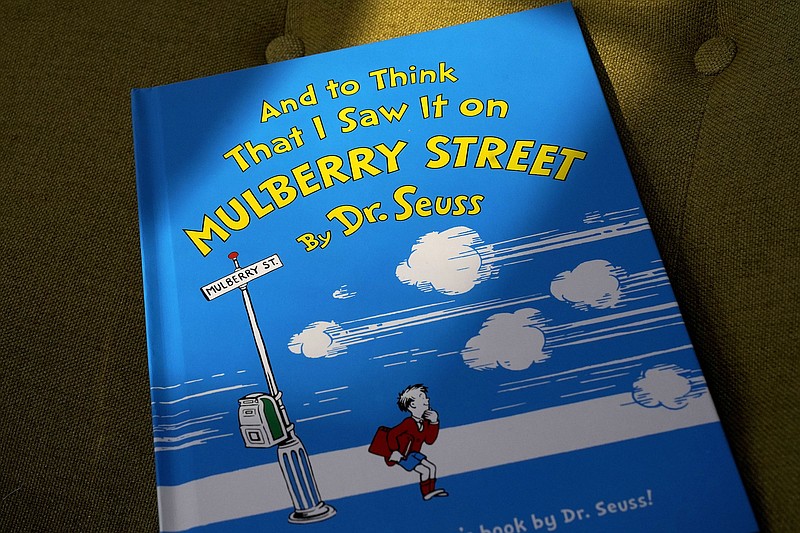The attempt of the Republican right wing to exploit the cultural divisions of Americans may be cynical, but that does not mean the divisions are not very real.
It is true that there are probably more urgent things to talk about than the removal of six books by Theodor Geisel (Dr. Seuss) from the market. They are not being banned or burned, just not reproduced going forward.
But it is nevertheless troubling when someone, anyone, especially a mob, or the state, tells the rest of us what to read.
In this case it was Dr. Seuss Enterprises, the business that oversees Geisel's estate.
It is troubling when the standards of today are applied to yesterday. (Even Lincoln, and definitely Jefferson, cannot measure up in that case.)
And it is perhaps most troubling when the whole of a person's life is reduced to one moment, one page, or one sentence and that life is then distorted and, eventually, canceled.
Pulling those books is not the worst thing. The fact that Dr. Seuss will now have the pall, and odor, of racism hanging over his legacy is the worst thing. For this was a man who strove to learn, and to change and to understand. And the thrust of his books, as a whole, is strongly toward pluralism, toleration and reconciliation.
Please share your views
Do you consider yourself right-leaning or conservative? If so, the Times Free Press would like to know what you think about news coverage. We are working with the Trusting News network, the Center for Media Engagement at the University of Texas to explore the challenges the news industry faces around the political divide in trust of news organizations. Thirty news organizations around the country are part of this effort and your participation will help us better understand and reflect your views. Click on this link to take a survey and sign up to be interviewed. If you're selected to be interviewed, you'll get a $25 gift card. Note that this survey is about news coverage, not opinion journalism.
Now there will be a chilling effect. More and more people will shy away from all of his books. He is marked. Suspect. Tainted.
The irony is that the good doctor himself (he was not one, of course) might well have decided to rewrite those six books, or pull them himself, were he still alive. For there are some things in those books that are painful to see and read today, and things that are just wrong, and would probably be painful for him.
But there is painful stuff in Twain, in Hemingway, and in Ellison - some of it intended, some of it not. If we want to be honest about our past, we have to look at it as it was. All of it.
And, in a free society, the choice of what to read and not read is up to the author and the reader. He offers, retracts, rewrites; the reader, the market takes it from there. We don't need chaperones.
We either believe in free minds and people or we do not.
We either believe in the freedom of literature and honest history, and the long arc of justice, or we do not.
The children's author Beverly Cleary died just last week, at the amazing age of 104. She worked into her 90s. She was a very different writer than Dr. Seuss. He was a fantasist; she was a realist. He wrote extended jokes; she wrote carefully observed fiction for the young. His characters were cartoons; hers were deeply honest and soulful.
And she happens to be politically correct - as of today. She celebrates the ordinary kid. She celebrates girls. One of her great characters, Ramona, is an assertive girl.
But she also wrote about an America now mostly gone - working-class Americans, all white, in a West Coast town that looks very different today than 50 or 60 years ago. No one in her books lives in a multiethnic neighborhood or has two dads or two moms.
Children's literature today is grappling with the realities children face, today. They face today's world with great resilience and great vulnerability - the two traits in the character of children that Cleary examined with such fondness and admiration.
But wouldn't it be a shame if Cleary were sidelined, marginalized or forgotten because she is not modern enough and of this moment? Neither is Tolstoy, Turgenev, Burke or Shakespeare, but we keep them around.
Pittsburgh Post-Gazette
